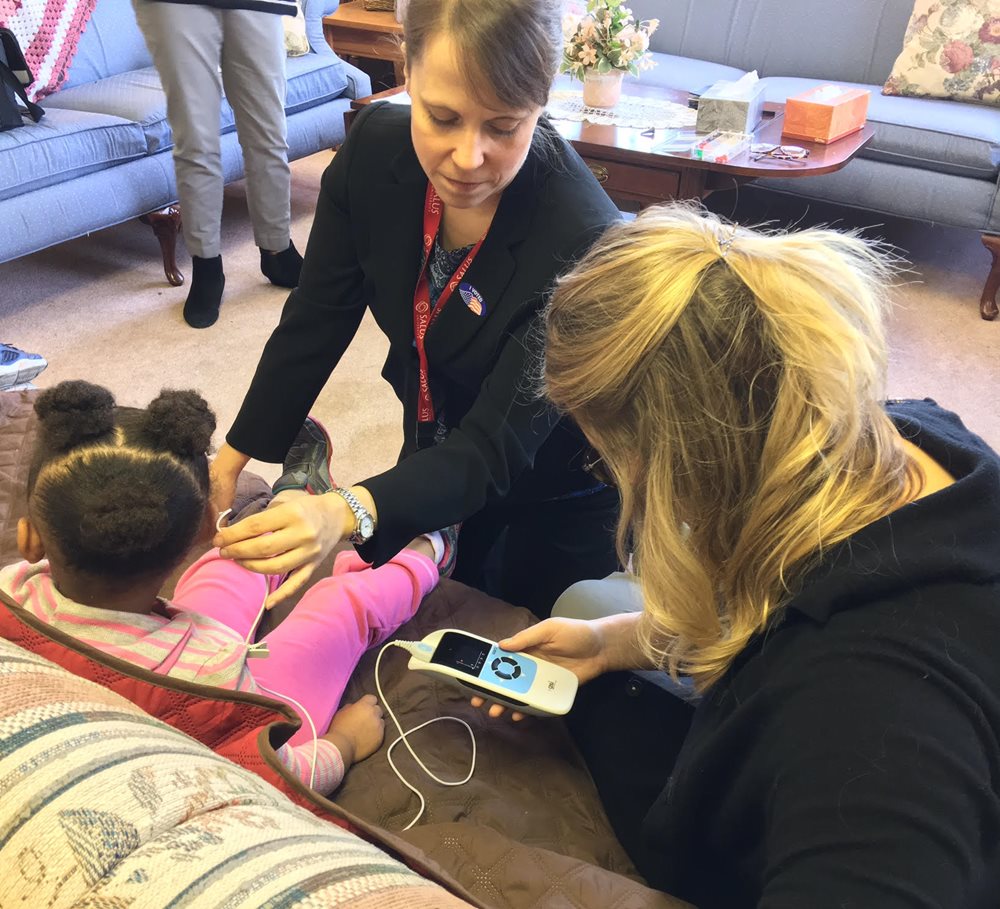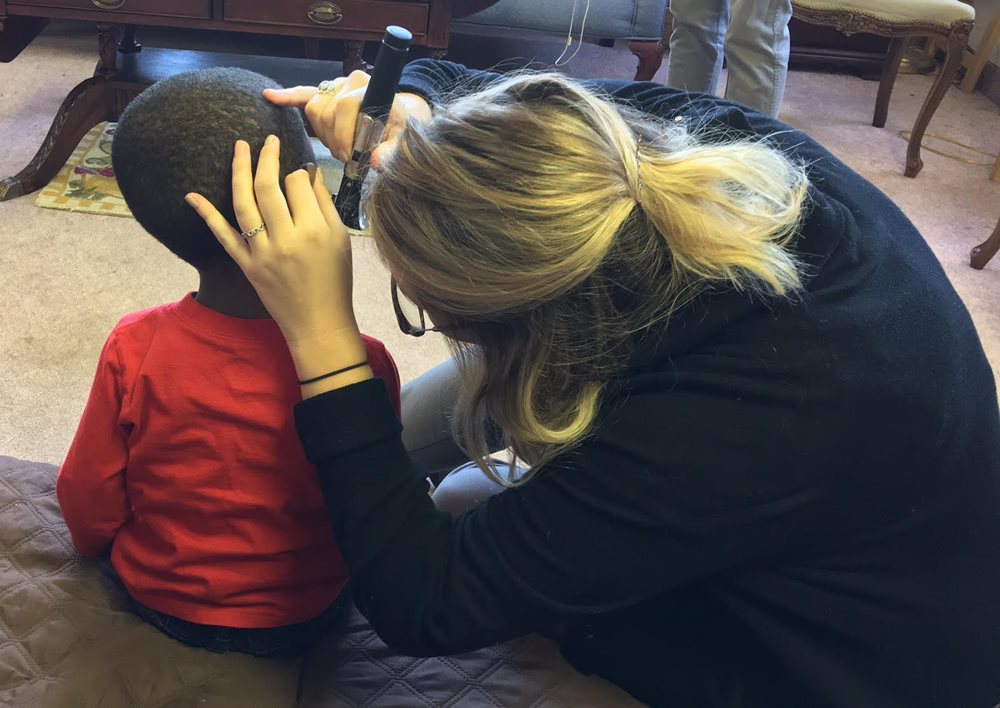Hearing Pennsylvania’s Children
 Hearing loss affects more than one in every seven school-aged children in the United States. Early identification of ear problems and hearing loss is important so children have access to information being presented in the classroom, and for communication with their friends and family. School hearing screenings are a way to identify hearing loss at an early stage.
Hearing loss affects more than one in every seven school-aged children in the United States. Early identification of ear problems and hearing loss is important so children have access to information being presented in the classroom, and for communication with their friends and family. School hearing screenings are a way to identify hearing loss at an early stage.
Since 2016, doctoral students from the Salus University Osborne College of Audiology and audiologists of the Pennsylvania Ear Institute (PEI) have participated in school hearing screenings in the city of Philadelphia and local communities. Each year, the school hearing screening program has grown, and the number of students screened has increased.
During the school year, the audiology students and audiologists could be seen carrying their audiometers and screening supplies as they headed out to local schools. Screening stations were set up in libraries, classrooms, and school nurses’ offices to ensure a quiet environment. Dr. Lindsay Bondurant, PEI director and Dr. Jenny Rajan, pediatric audiologist, supervised the students as they performed pediatric hearing screenings. In the 2018-2019 academic year alone, the teams visited 31 schools and screened approximately 120 students per school resulting in over 3,500 total students.
 With the number of children screened, it was not surprising that the audiology students encountered some interesting findings such as infections, ear wax, and foreign objects. Each child had a brief report written about the results of the screening to let the parent know if additional testing was needed, or if they needed to see their pediatrician about a possible medical problem.
With the number of children screened, it was not surprising that the audiology students encountered some interesting findings such as infections, ear wax, and foreign objects. Each child had a brief report written about the results of the screening to let the parent know if additional testing was needed, or if they needed to see their pediatrician about a possible medical problem.
Audiology students not only helped the children, but they also improved their skills while working with the pediatric population. Performing the hearing screenings in a school as opposed to a clinical setting also presented some interesting insights for the students. Concrete walls, open windows, children laughing and talking are all factors that can interfere with children’s ability to hear in the classroom. Students gained a very different perspective on what needs to be done to support children with hearing loss and how important outreach initiatives are for identifying children in need.
School hearing screenings are just one of the many ways hearing loss can be identified in a child. With the number of children the Doctor of Audiology students have had the opportunity to test, there is a promising future for the school hearing screening program to continue for many years to come.